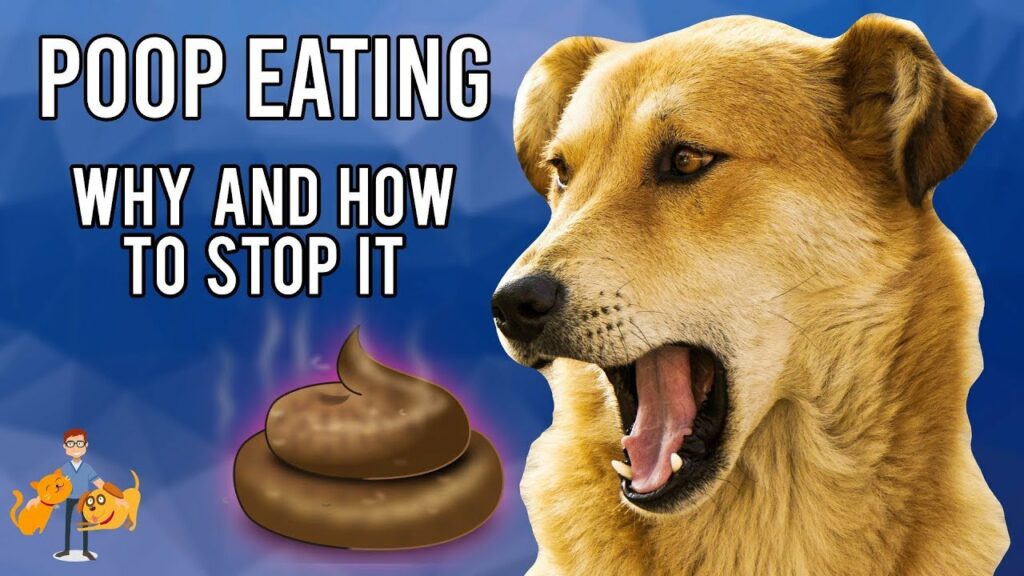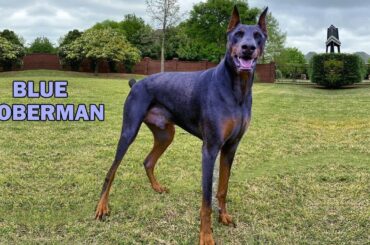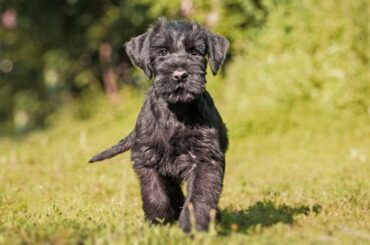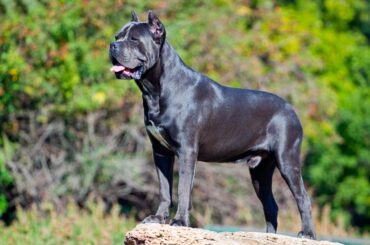In this article, we shall be discussing the reasons why do Dogs eat poop, a behavior known as coprophagia, can be quite perplexing and unpleasant for their owners. While the exact reasons for this behavior can vary from dog to dog, there are several common explanations for Dogs Eat Poop:
- Nutritional deficiencies: Sometimes, Dogs Eat Poop because they’re lacking certain nutrients in their diet. They may try to compensate for these deficiencies by consuming feces, as it can contain undigested food particles. Ensuring your dog receives a balanced and appropriate diet can help mitigate this behavior.
- Instinctual behavior: In the wild, some canines, such as wolves, may eat feces to keep their living areas clean and prevent the spread of diseases. This instinct may still be present in domesticated dogs, especially if they have been confined to a small space.
- Boredom or attention-seeking: Dogs that are bored or seeking attention may resort to eating poop as a way to entertain themselves or to get a reaction from their owners. They may have learned that engaging in this behavior leads to attention, even if it’s negative attention.
- Medical conditions: Certain medical conditions, such as malabsorption issues or enzyme deficiencies, can affect a dog’s digestion and lead to coprophagia. If you suspect an underlying health problem, it’s important to consult with a veterinarian.
- Puppies exploring their surroundings: Puppies are known to investigate and explore their environment with their mouths. This behavior includes tasting and sometimes consuming feces. With proper training and guidance, puppies can be discouraged from engaging in coprophagia as they grow older.
It’s essential to address this Dogs Eat Poop behavior promptly, as eating feces can expose dogs to parasites, bacteria, and other potential health risks. If your dog exhibits this behavior consistently, it’s advisable to consult with a veterinarian or a professional dog behaviorist to determine the underlying cause and develop an appropriate strategy to discourage coprophagia.
Table of Contents
What is Coprophagia? Why Do Dogs Eat Poop
Dogs Eat Poop – Coprophagia is a term used to describe the behavior of eating feces. It is primarily observed in animals, including certain species of insects, birds, rodents, and some mammals. While the term is often associated with animals, it can also refer to humans who engage in this behavior.
One of the most common issues for dogs is stool-eating, technically known as coprophagia. There are several reasons why a dog may eat poop, and they can all lead to this challenging habit. However, most reasons can be narrowed down to two categories: behavior and nutrition.
In the animal kingdom, coprophagia can serve various purposes depending on the species. For example, some animals, such as rabbits and rodents, have a specialized digestive system that allows them to extract additional nutrients from their feces. By consuming their own waste, they can further break down the cellulose and obtain essential vitamins produced by gut bacteria.
In other cases, coprophagia may occur for social or environmental reasons. Some animals engage in this behavior to keep their living areas clean, eliminate scent markers, or as a means of communication within a group.
In humans, coprophagia is considered a rare and abnormal behavior. It can be associated with certain psychological disorders or developmental conditions, such as pica, which involves persistent cravings for non-nutritive substances. Coprophagia in humans may also occur due to severe mental illness, intellectual disabilities, or as a result of deliberate self-harm.
It’s important to note that coprophagia can pose serious health risks, as feces can contain harmful bacteria, parasites, and toxins. If you or someone you know is engaging in coprophagia, it is crucial to seek medical and psychological help for appropriate evaluation and treatment.
“There are several reasons why a dog may eat poop, and they can all lead to this challenging habit. However, most reasons can be narrowed down to two categories: behavior and nutrition.”
Why Do Puppies Eat Poop?
Puppies eating their own poop or the poop of other animals is a behavior known as coprophagia. While it may seem unpleasant to us, there are several reasons why puppies engage in this behavior:
- Instinctual Behavior: In the wild, mother dogs would consume the feces of their puppies to keep the den clean and prevent predators from being attracted to the smell. Puppies may inherit this instinct and mimic their mother’s behavior.
- Exploration and Play: Puppies are naturally curious, and they often investigate their surroundings through their mouths. This includes sniffing and tasting things, including feces. To a puppy, feces may just be another interesting object to explore or play with.
- Nutritional Deficiency: Sometimes, puppies may eat feces due to a nutritional deficiency. If their diet lacks certain essential nutrients, they might seek them out in other sources, including feces. This is more common in cases where the puppy’s diet is imbalanced or inadequate.
- Attention-Seeking: Puppies may engage in coprophagia to get attention from their owners. If they receive a strong reaction or scolding when caught eating feces, they may see it as a way to get attention, even if it’s negative.
- Boredom or Anxiety: Puppies that are bored or experiencing anxiety may resort to coprophagia as a way to alleviate their feelings or occupy themselves. It can be a form of self-soothing or a result of stress.
If you have a puppy that is eating poop, it’s important to address the behavior to ensure their health and well-being. Here are a few steps you can take to stop Dogs Eat Poop:
- Keep the Environment Clean: Remove feces promptly from the puppy’s living area to minimize their access to it.
- Proper Nutrition: Ensure that your puppy is on a well-balanced diet suitable for their age and breed. Consult your veterinarian to determine if any dietary changes or supplements are needed.
- Supervision and Training: Keep a close eye on your puppy when outside to prevent them from eating feces. When they show interest in feces, redirect their attention to an appropriate toy or activity. Reward them with praise and treats when they exhibit positive behavior.
- Increase Exercise and Mental Stimulation: Provide your puppy with plenty of physical exercise and mental stimulation to prevent boredom and anxiety. Regular play sessions, training, and interactive toys can help keep them engaged and satisfied.
- Consult a Veterinarian: If the Dogs Eat Poop behavior persists despite your efforts, or if you suspect a nutritional deficiency, it’s advisable to consult a veterinarian. They can evaluate your puppy’s health and provide further guidance.
Remember, consistency, positive reinforcement, and patience are key when addressing undesirable behaviors in puppies.
Behavioral Reasons For Coprophagia
Coprophagia, which refers to the ingestion of feces, can be observed in various animals, including humans. While the specific behavioral reasons for coprophagia may vary depending on the individual and the species, here are some possible explanations:
- Nutritional Deficiencies: In some cases, coprophagia may occur as a result of nutritional deficiencies. Animals, including dogs, may engage in coprophagia to compensate for a lack of certain nutrients in their diet. By consuming feces, they can potentially obtain undigested food particles or nutrients that they need.
- Learned Behavior: Coprophagia can also be learned through observation or social facilitation. For example, if a young animal sees its mother or other members of its social group engaging in coprophagia, it may mimic their behavior. In some cases, coprophagia can become a habitual behavior that persists even when nutritional needs are adequately met.
- Attention-Seeking: Coprophagia can sometimes be a means for animals to gain attention or a reaction from their owners or caregivers. If an animal realizes that engaging in coprophagia elicits a strong response or attention from their human companions, they may continue the behavior as a way to seek attention.
- Stress or Anxiety: Dogs Eat Poop which is refer to as coprophagia is as a response to stress, anxiety, or boredom. Similar to other compulsive behaviors, coprophagia can serve as a self-soothing mechanism or a way to alleviate anxiety or tension. The behavior may temporarily distract the animal from underlying emotional discomfort.
- Lack of Environmental Stimulation: Animals that do not receive sufficient mental and physical stimulation may resort to coprophagia as a way to alleviate boredom or to engage in an activity. Inadequate exercise, lack of toys, or an unstimulating environment can contribute to the development of coprophagia.
- Medical Conditions: In some cases, coprophagia may be linked to underlying medical conditions. Digestive disorders, malabsorption issues, parasites, or hormonal imbalances can affect an animal’s digestive system, leading to coprophagia as a symptom. It is important to consult with a veterinarian if coprophagia is observed, as they can help determine if there are any underlying medical issues.
It is worth noting that coprophagia is not considered a normal behavior in most species, including humans. If you or someone you know is experiencing coprophagia, it is important to consult with a medical or behavioral professional to address the issue appropriately.
Why do Dogs Eat Cat Poop?
Dogs eating cat poop is a relatively common behavior, and there are several reasons why they might engage in this behavior:
- Attractiveness: Dogs are attracted to the smell and taste of cat feces. Cat poop contains certain proteins and fats that can be appealing to dogs.
- Nutritional Value: Cat food tends to be higher in protein and fat content than dog food. When cats digest their food, some of these nutrients pass through their system undigested, making them still present in their feces. Dogs, being scavengers, may be instinctively drawn to these nutrient-rich remnants.
- Scent Marking: Dogs have a keen sense of smell, and they use their noses to explore and understand the world around them. Cat feces have a strong odor, which can attract dogs. By sniffing or even eating cat poop, dogs may be trying to gather information about the other animals in their environment.
- Behavioral Reasons: Dogs are known to engage in various behaviors for attention or out of boredom. Eating cat poop can be a self-rewarding behavior, as it may receive a reaction from their owners, even if it’s negative. Additionally, if dogs are not mentally or physically stimulated enough, they may resort to engaging in behaviors like eating cat feces to alleviate boredom.
While it’s relatively common for dogs to eat cat poop, it’s important to discourage this behavior for health reasons. Cat feces can contain parasites, bacteria, and other pathogens that can be harmful to dogs. Additionally, cat litter can be harmful if ingested. To prevent your dog from eating cat poop, make sure to clean the litter box regularly, keep it out of your dog’s reach, and consider providing them with appropriate toys and activities to keep them mentally and physically stimulated. If the behavior persists or becomes a concern, it’s best to consult with a veterinarian for further guidance.
How Do You Stop Dogs Eat Poop?
If you’re dealing with a dog that has a habit of Dogs Eat Poop, known as coprophagia, there are several steps you can take to address and potentially stop this behavior. Here are some tips:
- Veterinary check-up: Schedule a visit to the veterinarian to rule out any underlying medical conditions that might be causing the behavior of Dogs Eat Poop. Sometimes, nutritional deficiencies or digestive issues can contribute to coprophagia; Dogs Eat Poop.
- Consistent feeding schedule: Establish a regular feeding schedule for your dog. Feeding your dog at the same times each day can help regulate their digestion and reduce the likelihood of them seeking out feces as an alternative food source.
- High-quality diet: Ensure your dog is on a well-balanced, nutritious diet appropriate for their age and size. Sometimes, dogs eat poop due to a lack of nutrients, so providing a high-quality food can help address this.
- Clean up immediately: One of the most effective ways to prevent dogs from eating feces; Dogs Eat Poop is to promptly clean up after them. Whether you’re at home or out for a walk, make sure to clean up your dog’s waste as soon as possible. This reduces the opportunity for your dog to engage in the behavior.
- Environmental management: If your dog has access to a yard, consider using deterrents to make feces less appealing. There are commercial products available that can be sprayed on the poop to discourage ingestion. Alternatively, you can try covering the area with rocks or placing barriers to limit access.
- Training and redirection: Train your dog with basic obedience commands such as “leave it” or “drop it.” These commands can be useful for redirecting your dog’s attention away from feces. Reward your dog with treats or praise when they respond appropriately.
- Increase mental and physical stimulation: Dogs may engage in coprophagia due to boredom or lack of mental and physical stimulation. Make sure your dog gets plenty of exercise, playtime, and mental stimulation through activities like puzzle toys, training sessions, and interactive games.
- Supervision and leashing: When you’re out for walks or in environments where you know there might be feces, keep your dog on a leash and closely supervise them. This allows you to have control and prevent them from accessing or consuming poop.
Remember, breaking this habit takes time and consistency. If the behavior persists or becomes a significant concern, consult with a professional dog trainer or animal behaviorist for further guidance and assistance tailored to your specific situation.
Additional Resources
- Resource Guarding in Dogs – How to Address Resource Guarding in Dogs
- Top 10 Dog Training Tips – How to Completely Train Your Dog
- Facts About German Shepherd Dog – 6 Exclusive Body Characteristics, Behaviour Caring And Health
The article provided via this website should not be used to determine or treat a health problem or disease; it is not intended to offer any legal opinion or advice or a substitute for professional safety advice or professional care. Please consult your Vertinary Doctor or health care provider, attorney, or product manual for professional advice. Products and services reviewed are provided by third parties; we are not responsible in any way for them, nor do we guarantee their functionality, utility, safety, or reliability. Our content is for educational purposes only.
If you like, please share it. Sharing is usually caring.




